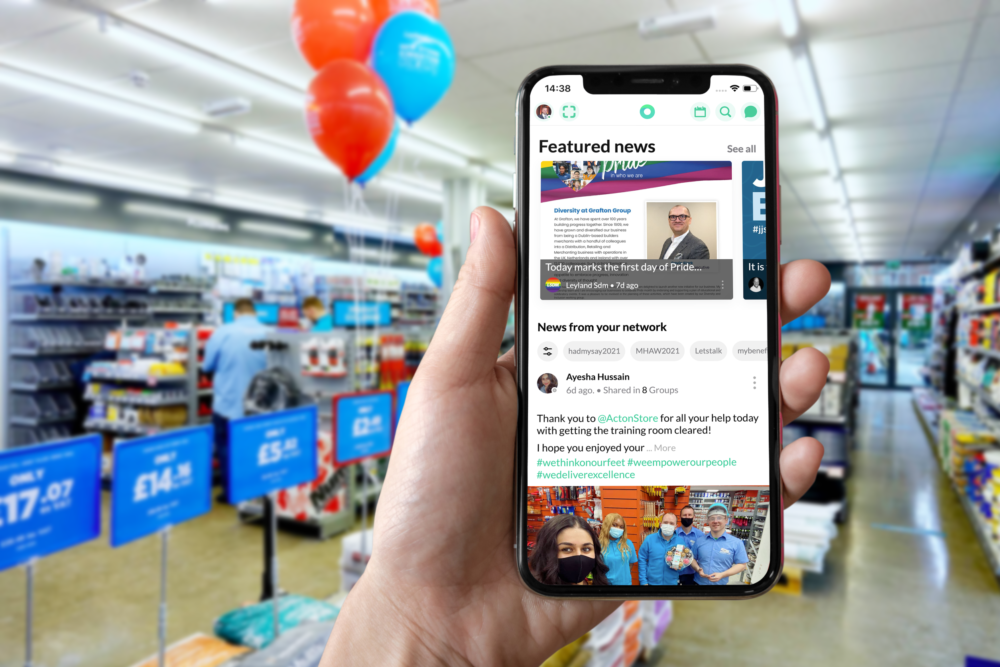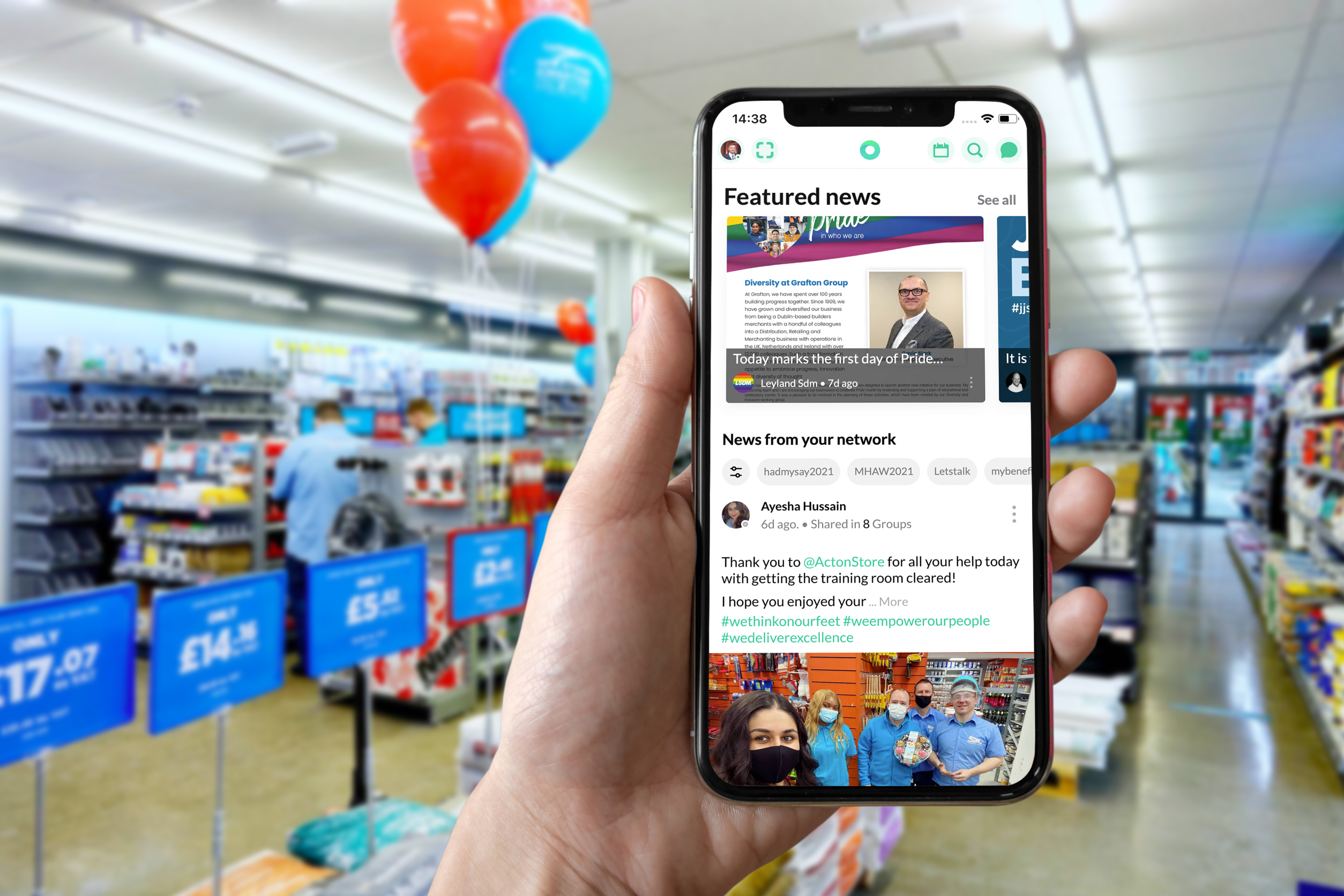UK retailers, facing a perfect storm of challenges including labour shortages, intense hiring competition and heavier employee workloads, are prioritising investment in digital workplace tools to support their frontline employees and enhance the customer experience.
At the start of the pivotal Christmas shopping period more than 26,000 seasonal job vacancies are currently live across the UK – a figure approximately 25% higher than the figure recorded in 2019, before the start of the pandemic – with many retailers offering significant Christmas bonuses to attract temporary staff1. But looking beyond the seasonal rush, retailers are finding themselves shorthanded during a period of significant, and ongoing, industry change as they adapt to changing consumer preferences, the transition to digital business processes and reinvent their physical spaces to respond to a pandemic impacted landscape.

Original research of 165 senior retail decision makers by Coresight for YOOBIC, the digital workplace solution for frontline teams, in The Future of the Digital Workplace report found that 70% of respondents said high turnover and staff shortages were challenging to their businesses at a time when frontline staff remain critical to retailers’ success. 56% of respondents highlighted the importance of physical stores, and the frontline staff working in them, as the ‘face’ of their brands’ omnichannel experience as retailers increasingly need to offer additional services such as pick up/ return in-store and delivery options linking to online channels. While 44% said stores will continue to account for most of their companies’ sales over the next few years, 59% of those surveyed said store associates needed tools to enable them to match their product knowledge with that of increasingly well informed and demanding consumers.
To meet these challenges, 60% of respondents indicated their businesses planned to invest more in digital workplace technology, over the next 12–18 months, than in prior years. By country, 66% of UK respondents said they plan to invest more versus 60% of US respondents and 52% of respondents in Canada. Home improvement and DIY (84%) and fashion brands and retailers (74%) lead the way, with the highest proportions of respondents in these verticals reporting a planned increase in investment in digital workplace applications – driven by the issues around insufficient staffing and turnover. Improving communication with frontline staff emerged as the top reason for increased investment with 68% of respondents saying easy, regular and timely interaction with staff made them feel more connected with the wider organisation.
Investing in the long-term future of the workforce was among the top drivers cited by 51% of respondents. Facing labor shortages and high turnover, retailers are realising that they need to do more to invest in the long-term future of their workforce so that they can provide a more satisfying employee experience, enabling employees to see improved growth opportunities and a clearer career path. Increased staff engagement was cited by 43% of respondents that plan to spend more as more motivated and engaged staff are often more productive, and an enhanced employee experience boosts retention.
Fabrice Haiat, CEO and co-founder of YOOBIC, commented: “Propelled by the Covid-19 pandemic, the acceleration of several industry trends at once has forced retailers to adapt quickly, especially those that rely on physical locations for their business. With increasingly digitally savvy and demanding consumers who expect seamless omnichannel shopping experiences, retailers need to arm frontline employees with the modern tools needed to meet consumers where they are. Faced with insufficient staffing and fierce competition for labor, retailers must look for ways to increase employee productivity, engagement and job satisfaction. All of these challenges that retailers are facing make investing in digital workplace applications that enable organisations to do more with less, increasingly relevant.”
“Our research shows nearly all retailers (91%) surveyed plan to continue investing in digital workplace technology at the same or increased levels as previously over the next 12–18 months. And the evidence to support this adoption is overwhelming. 82% of respondents whose organisations use digital workplace applications indicated improvement in sales conversion since the introduction of the new technology – likely because of better communications, task management and store execution. By increasing the level of employee engagement, digital workplace applications can help deliver enhanced customer experiences and store execution, which rely on great frontline employee experiences, making digital workplace technology critical in the current retail environment,” Haiat concluded.





















